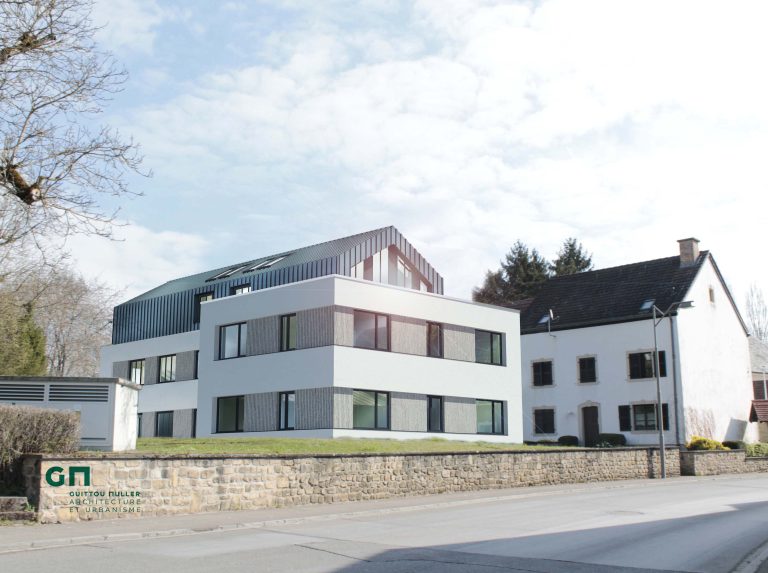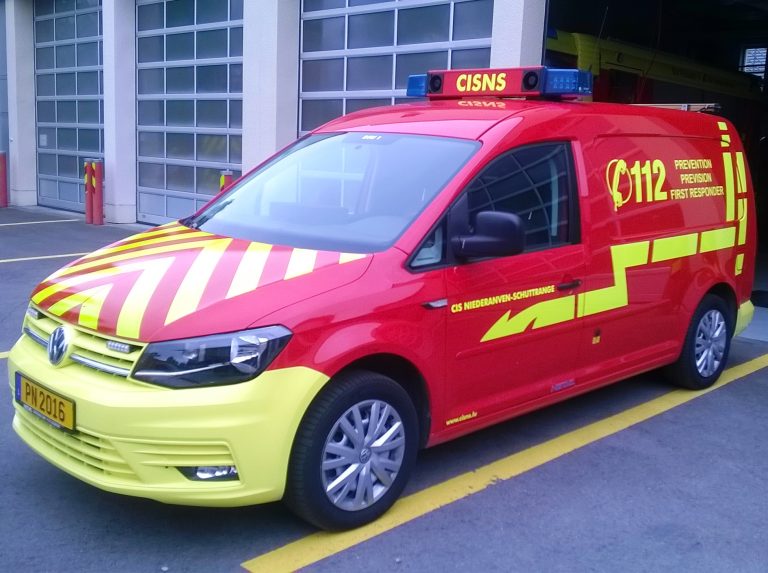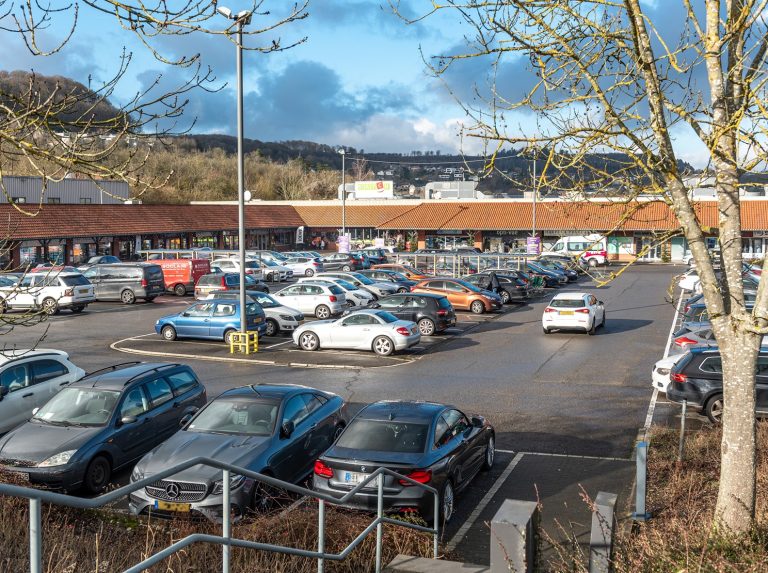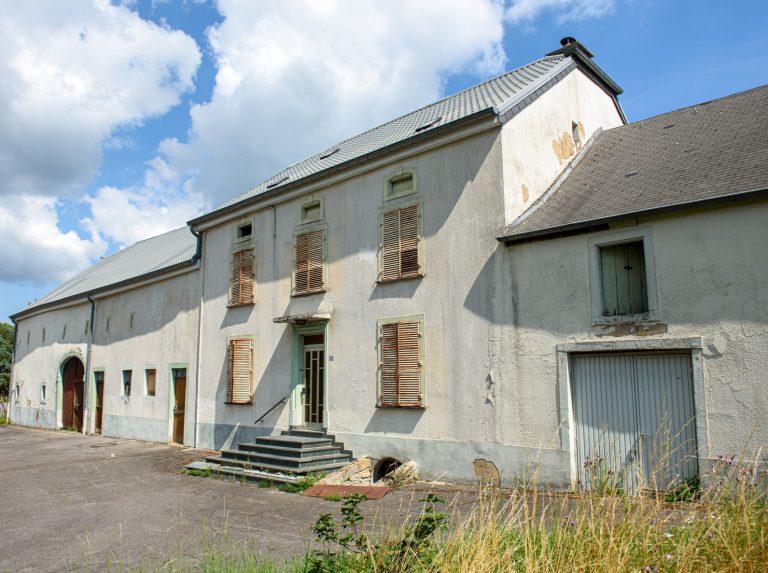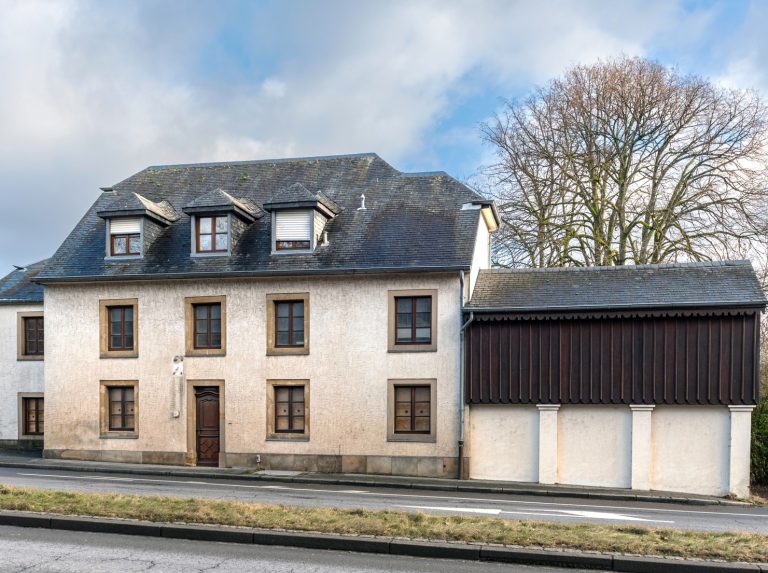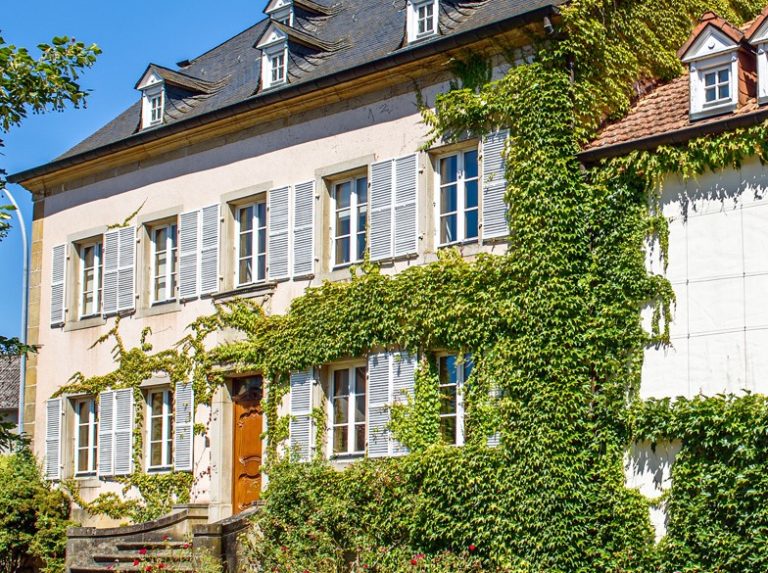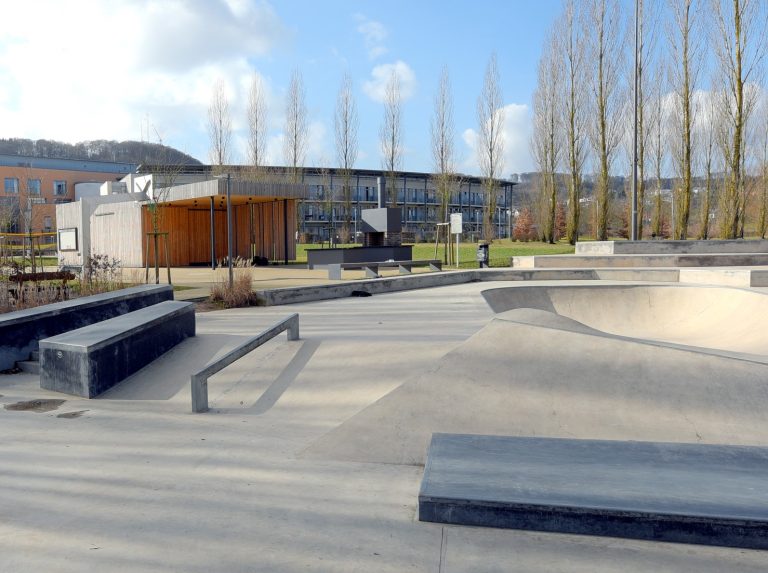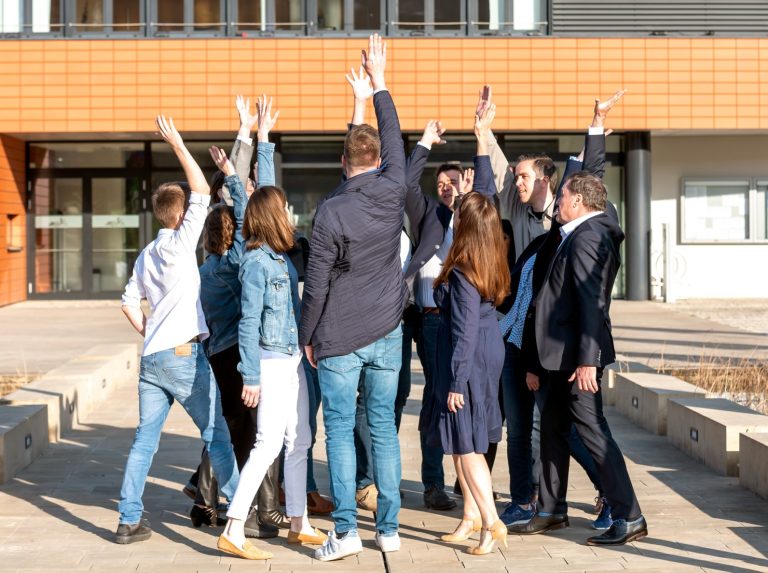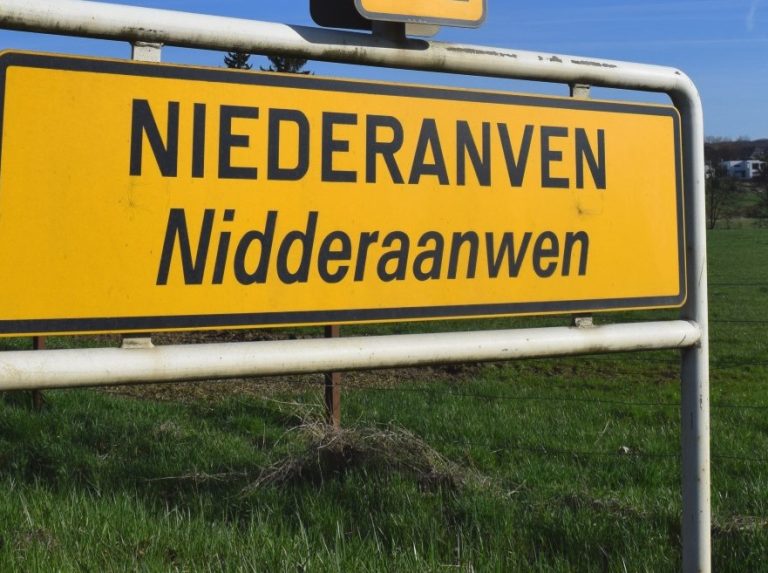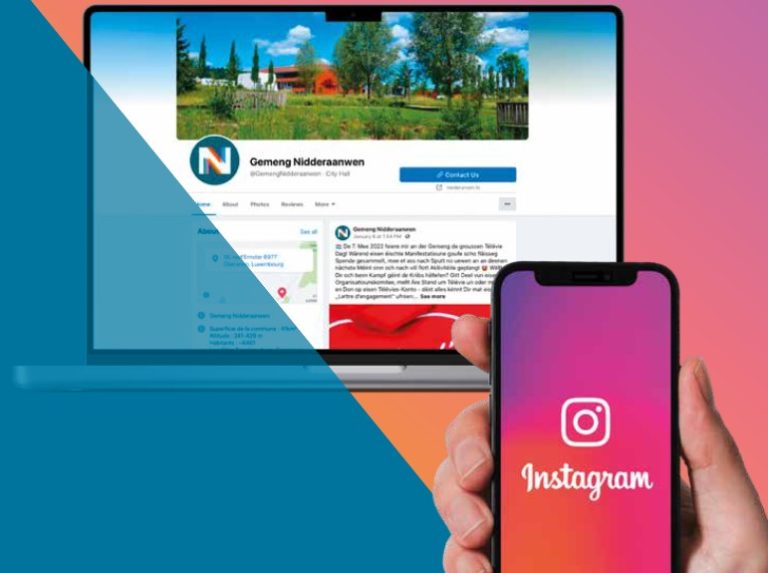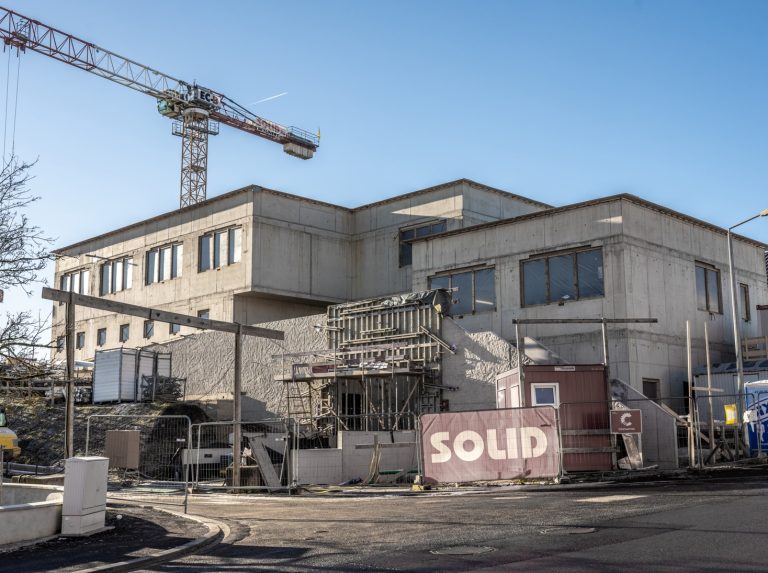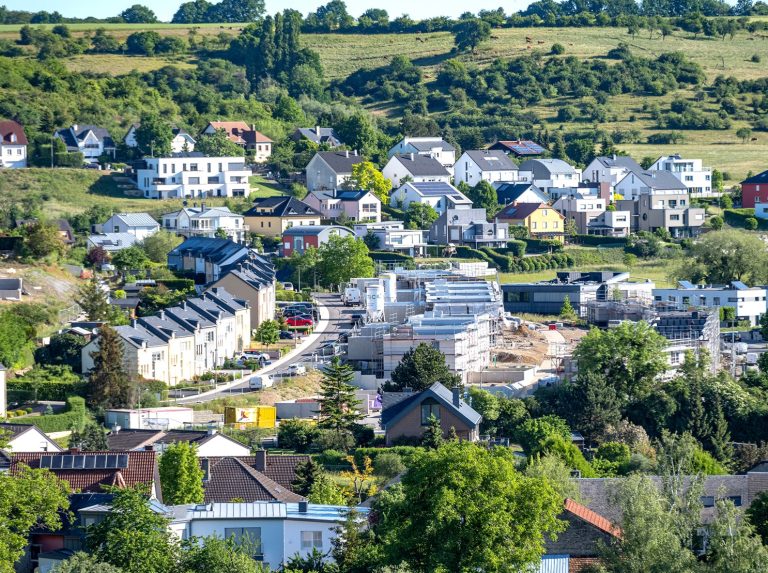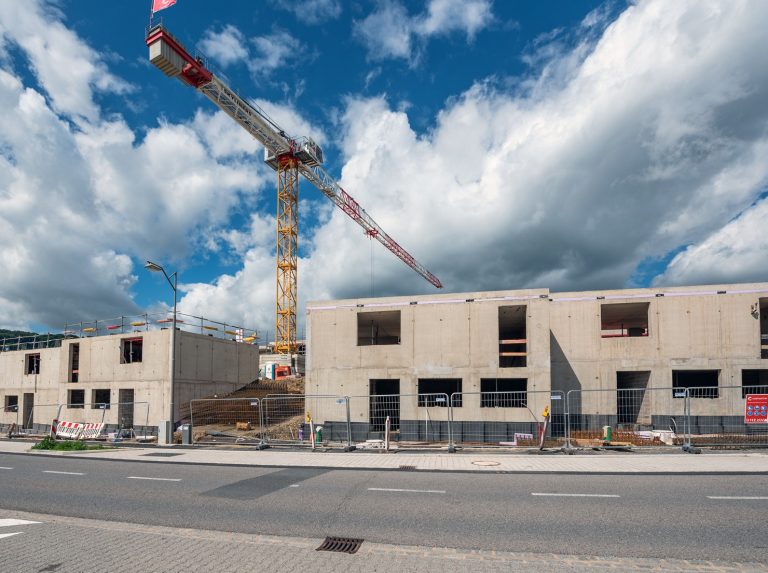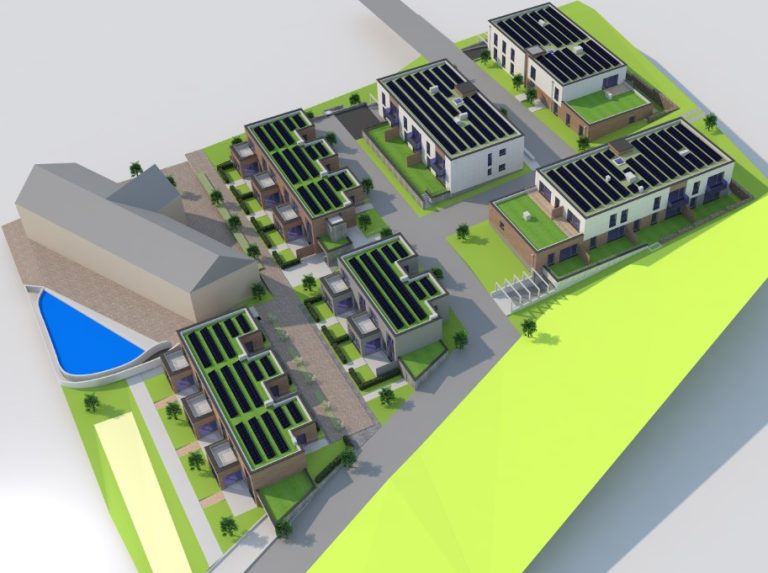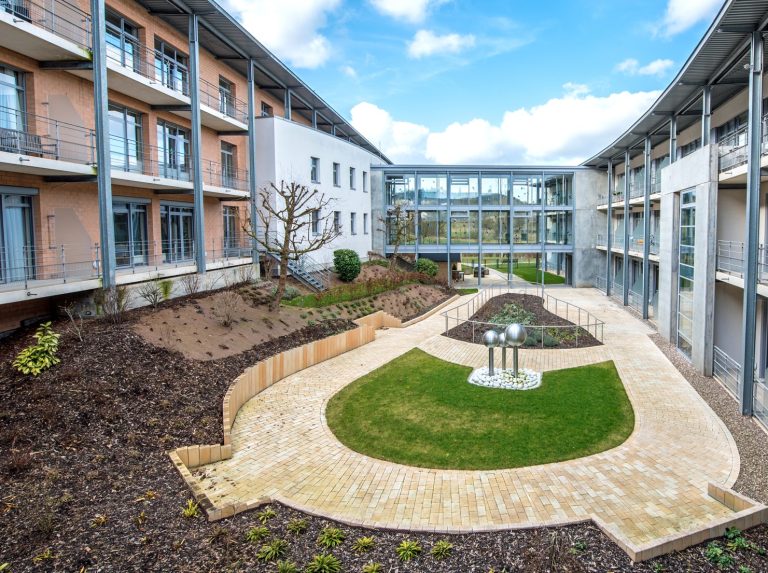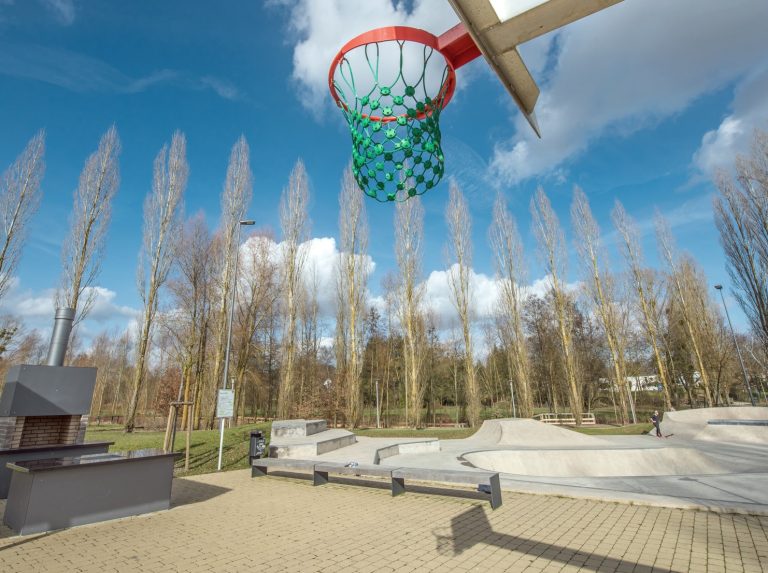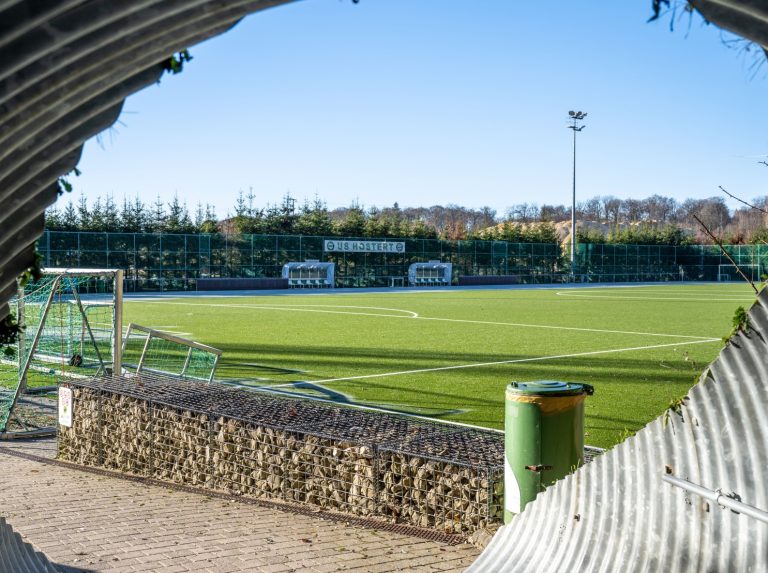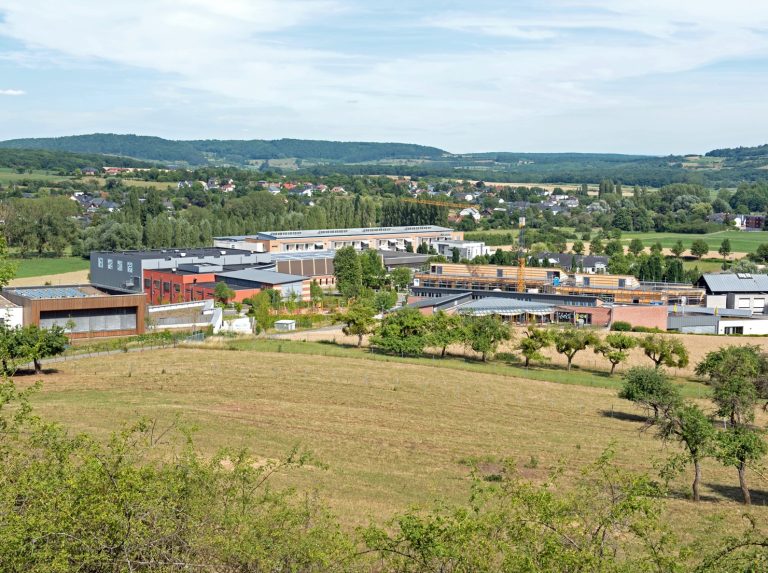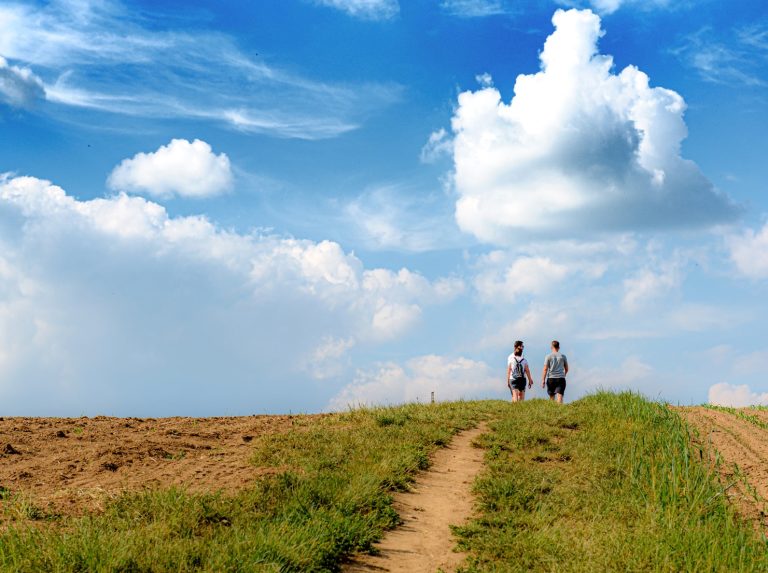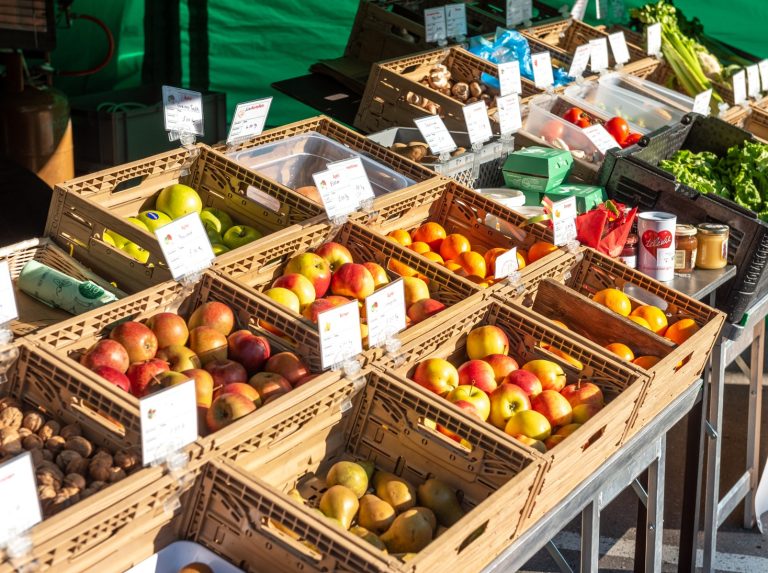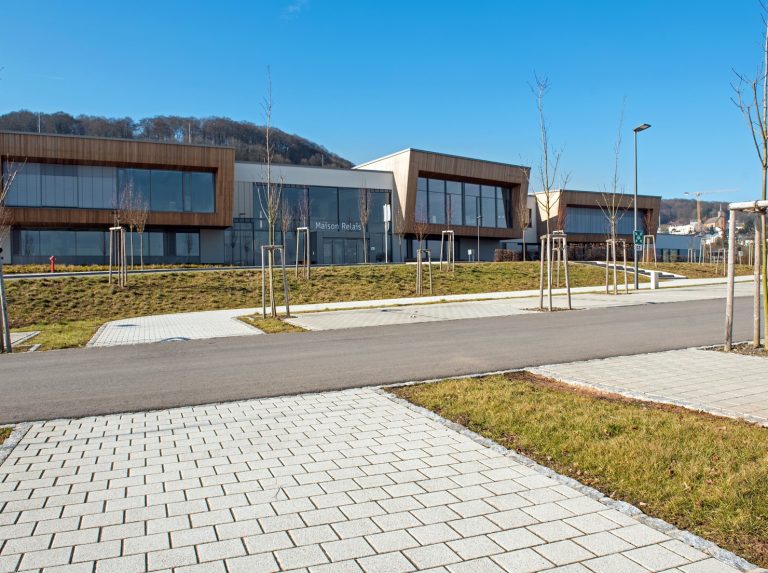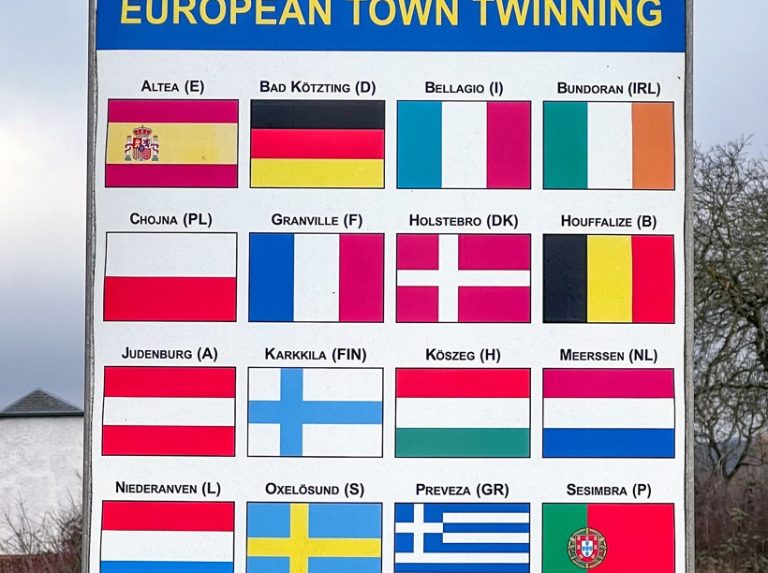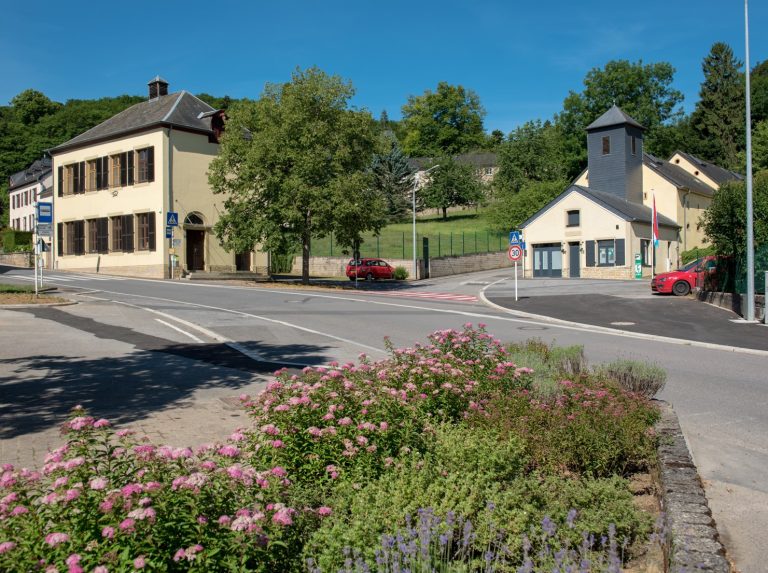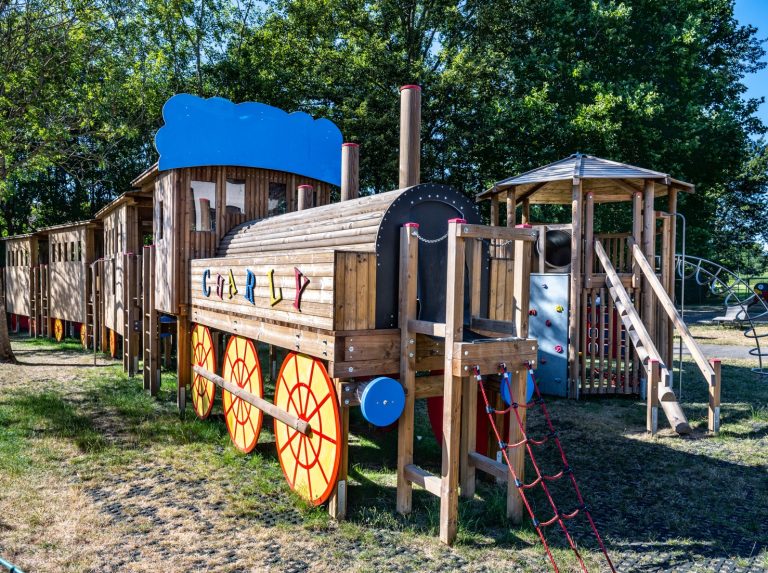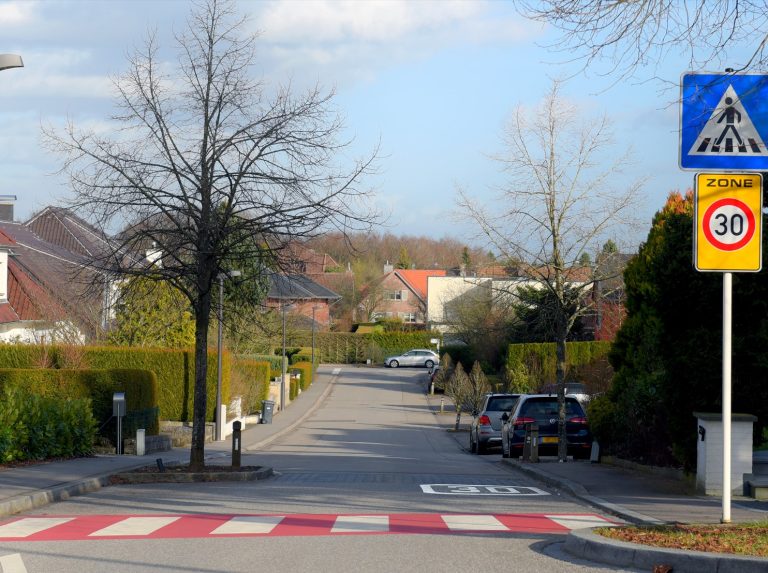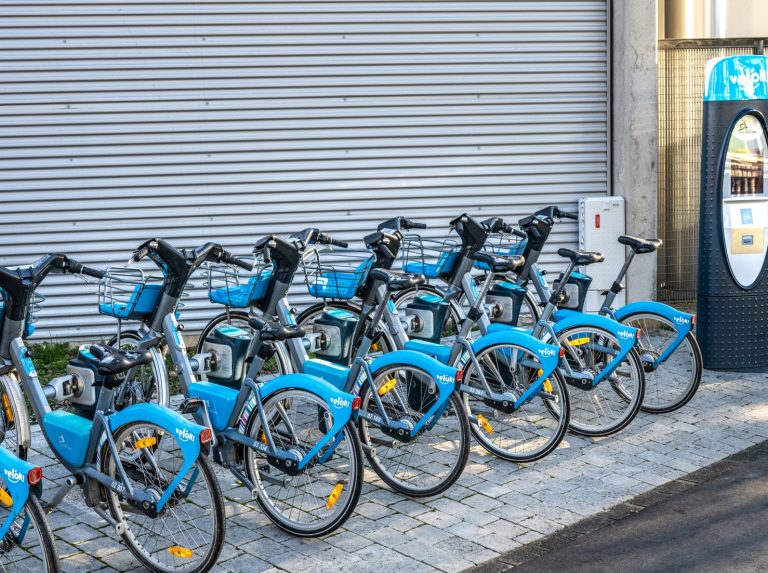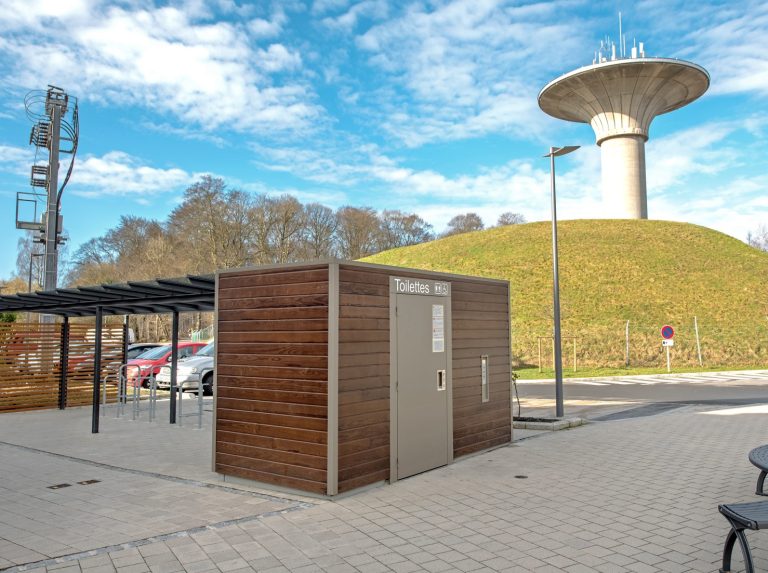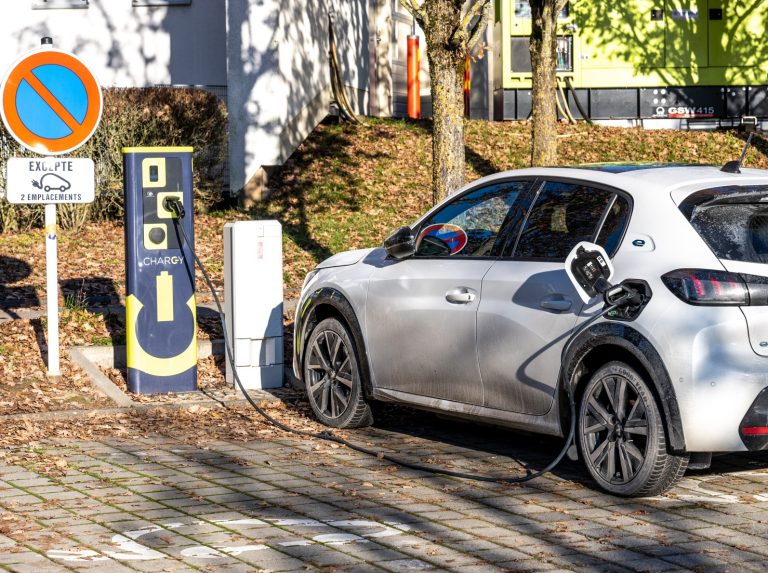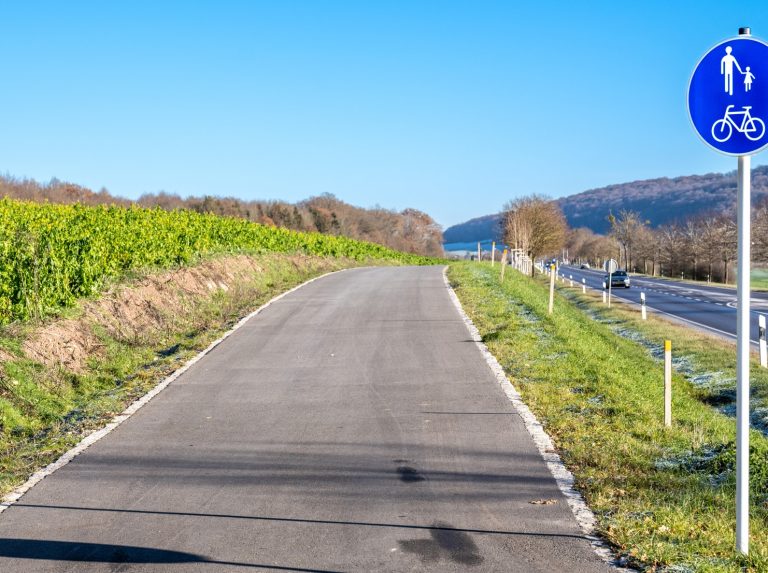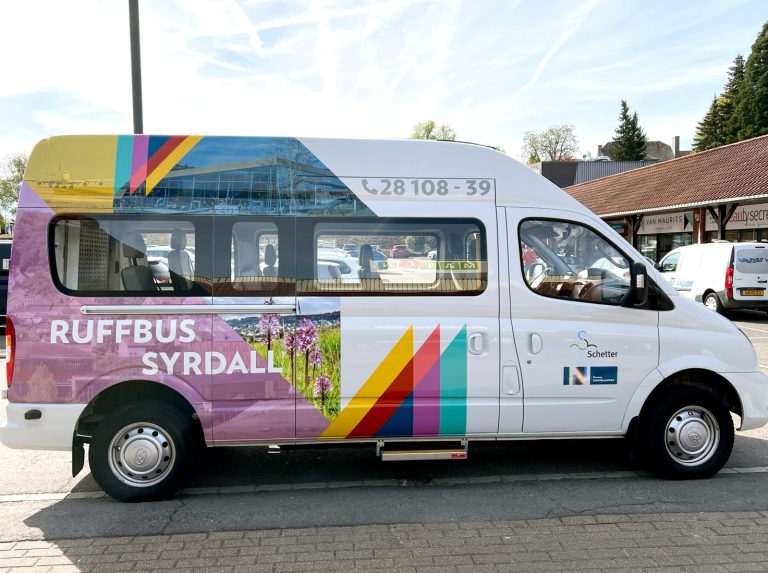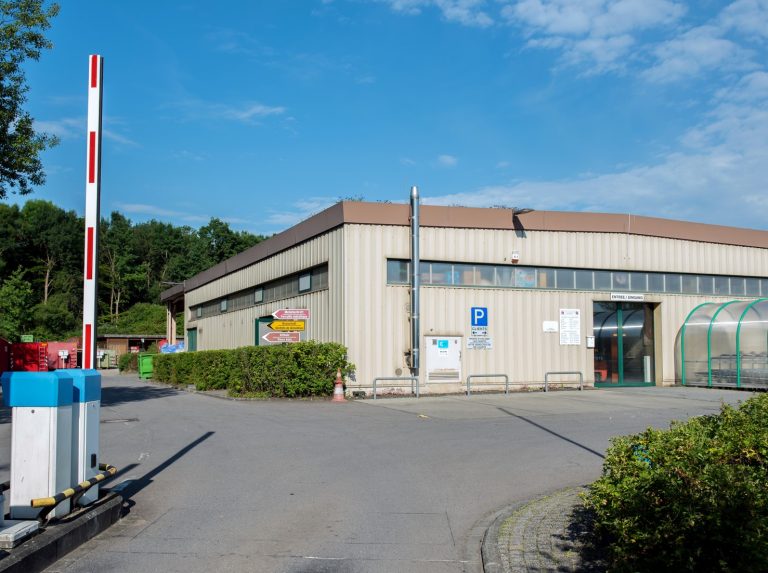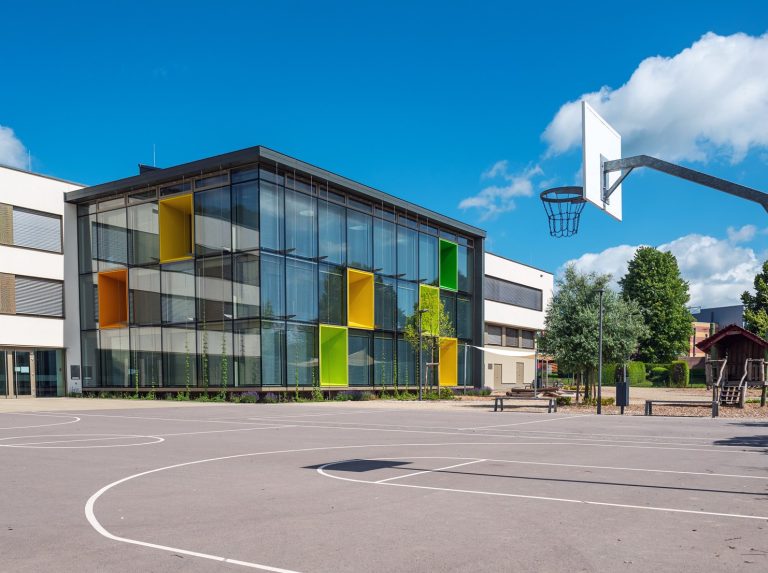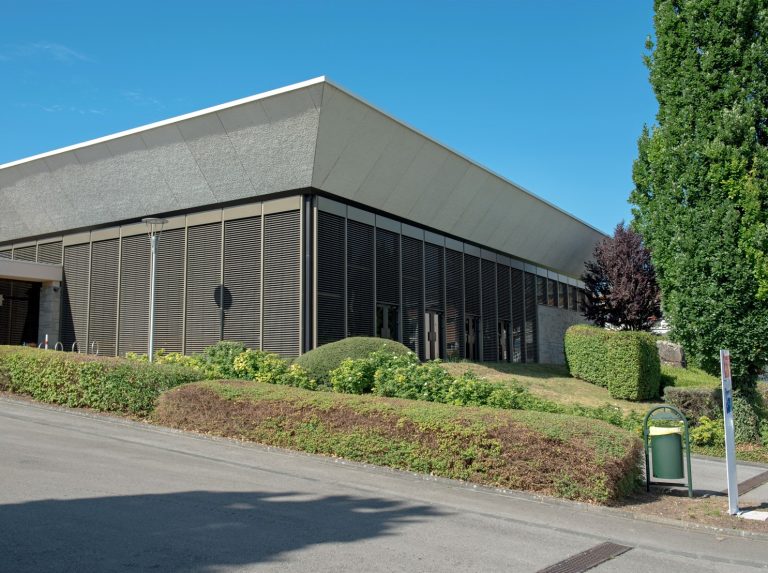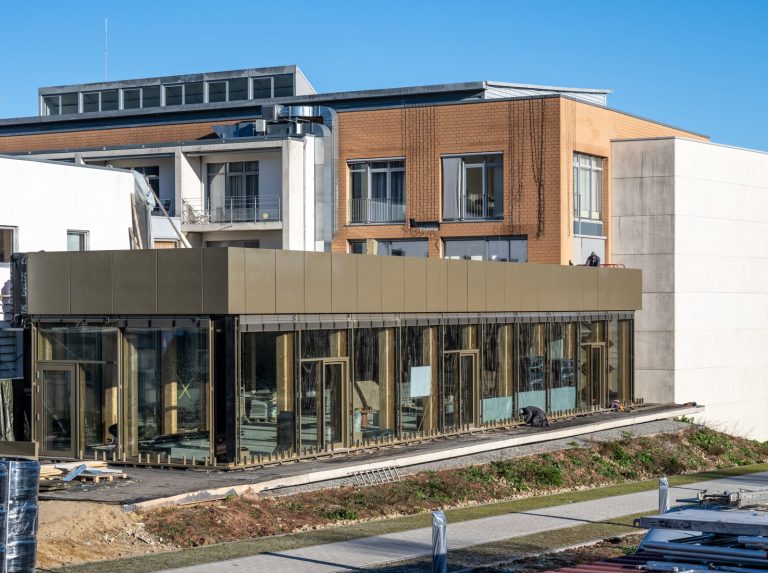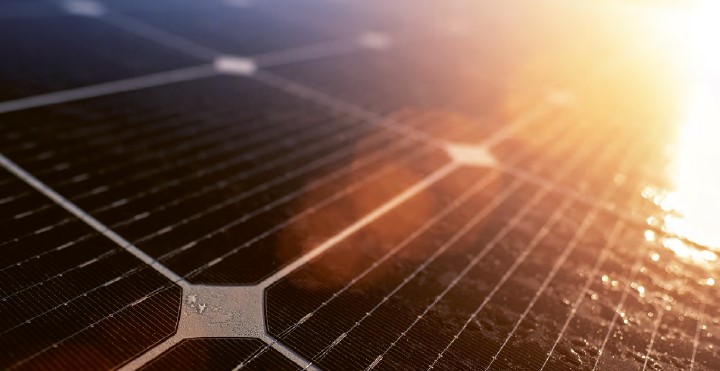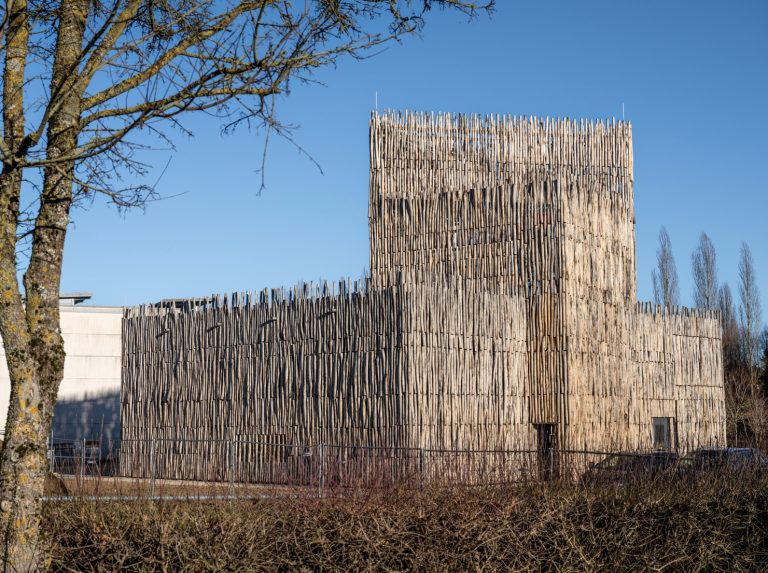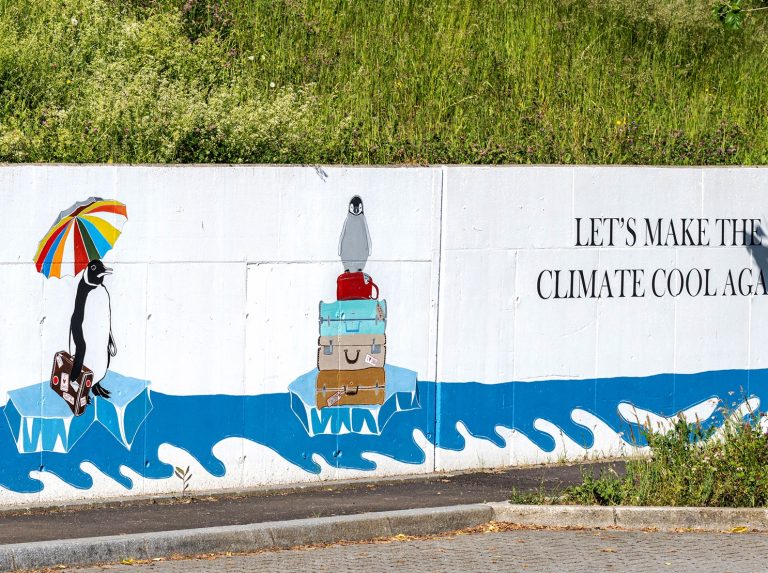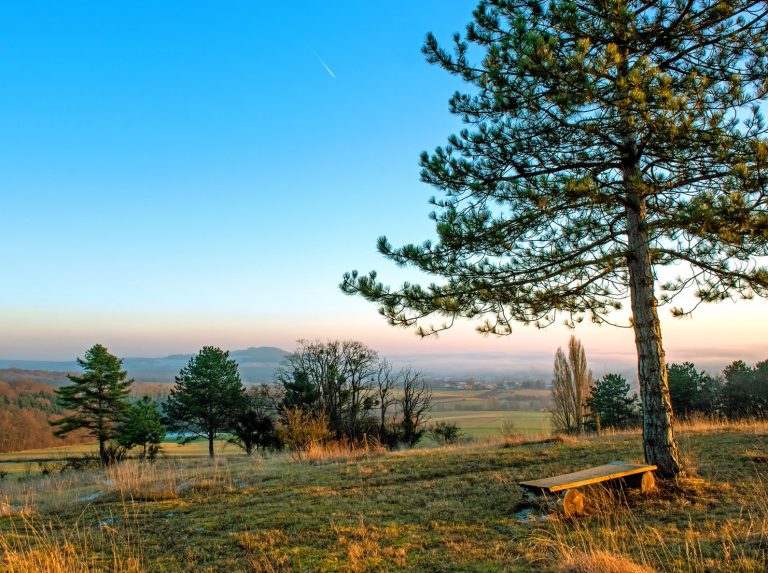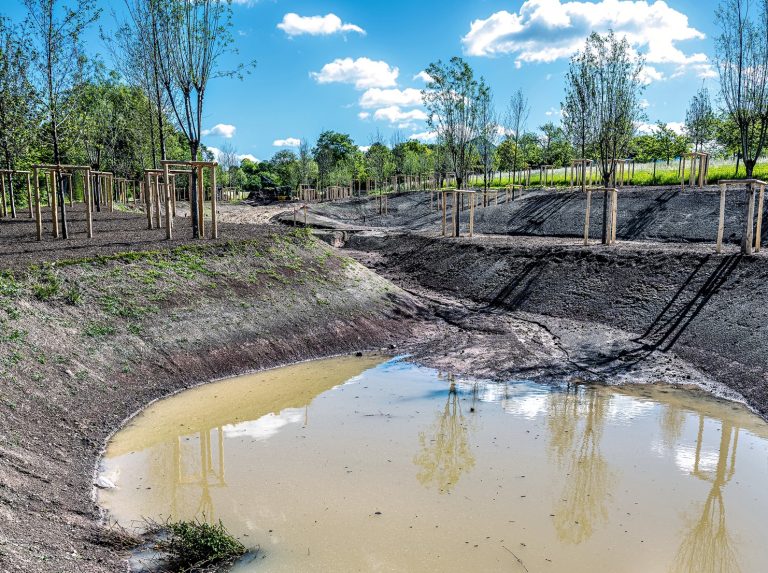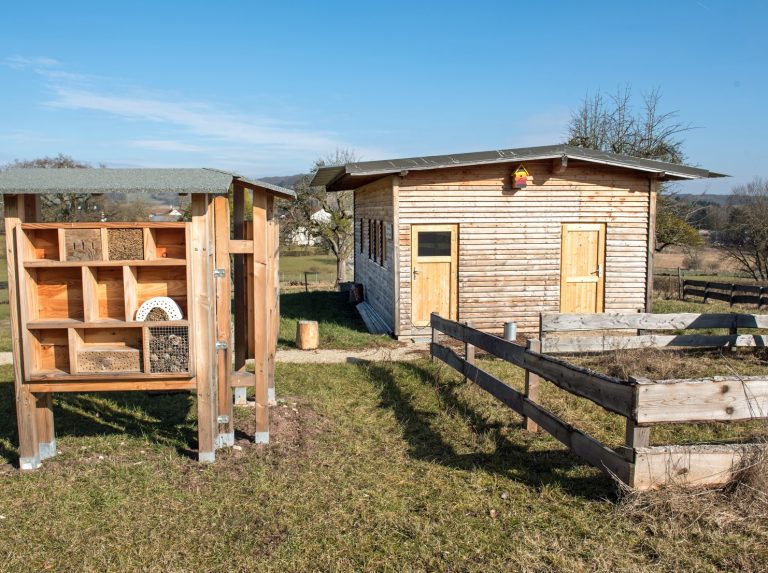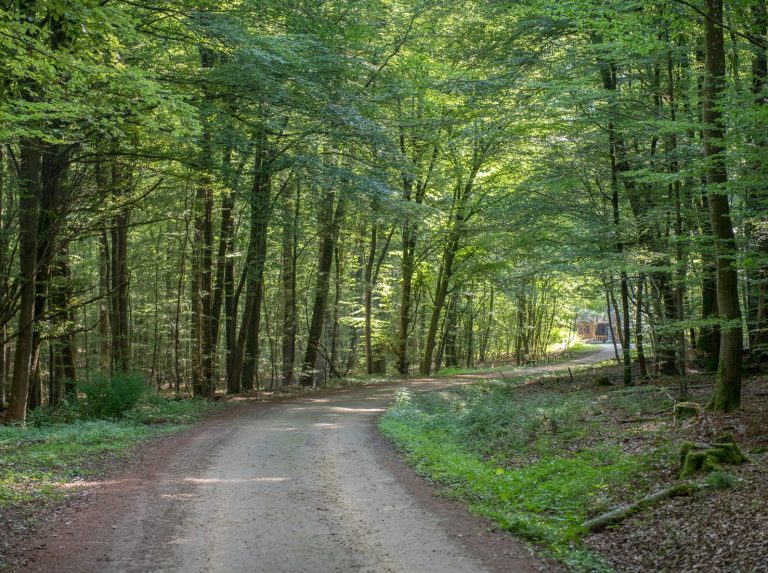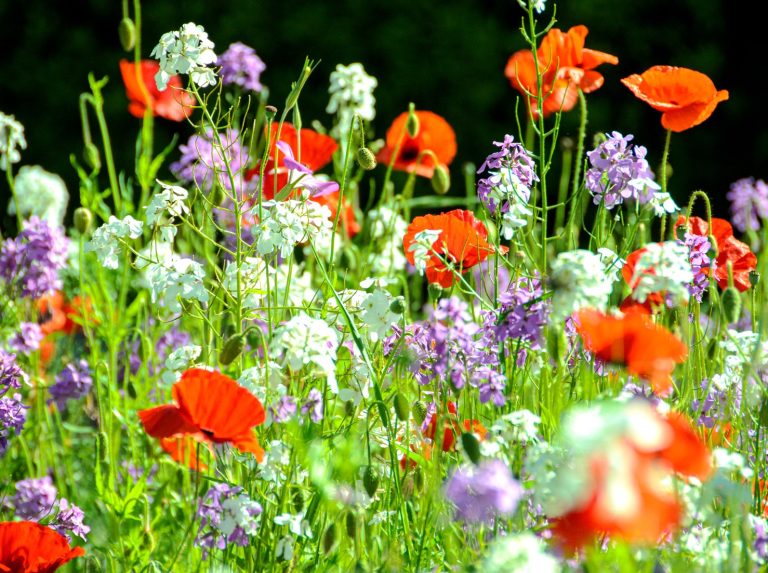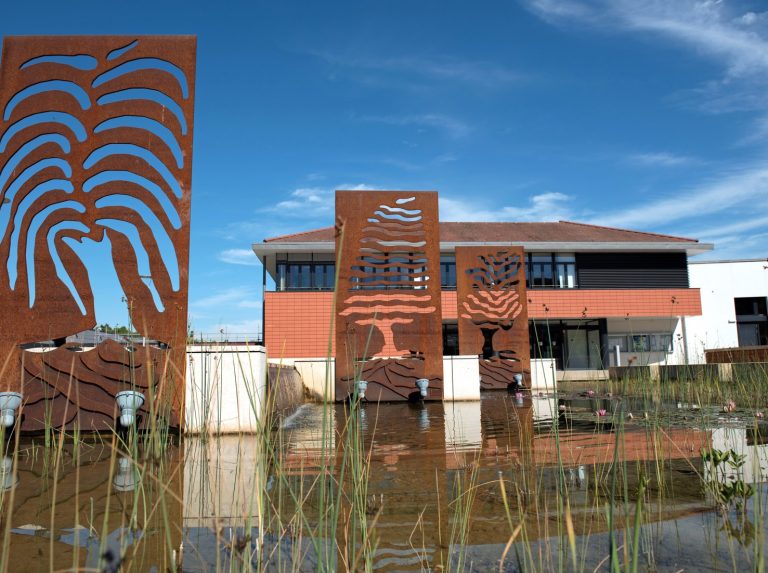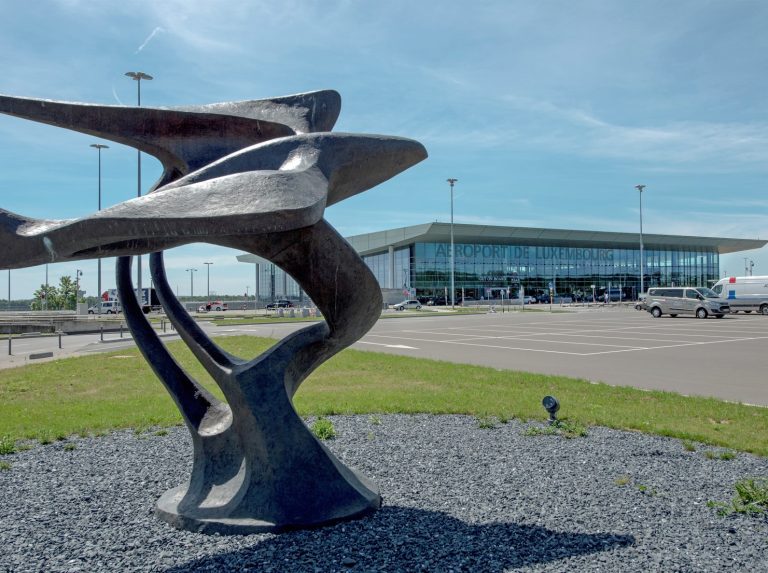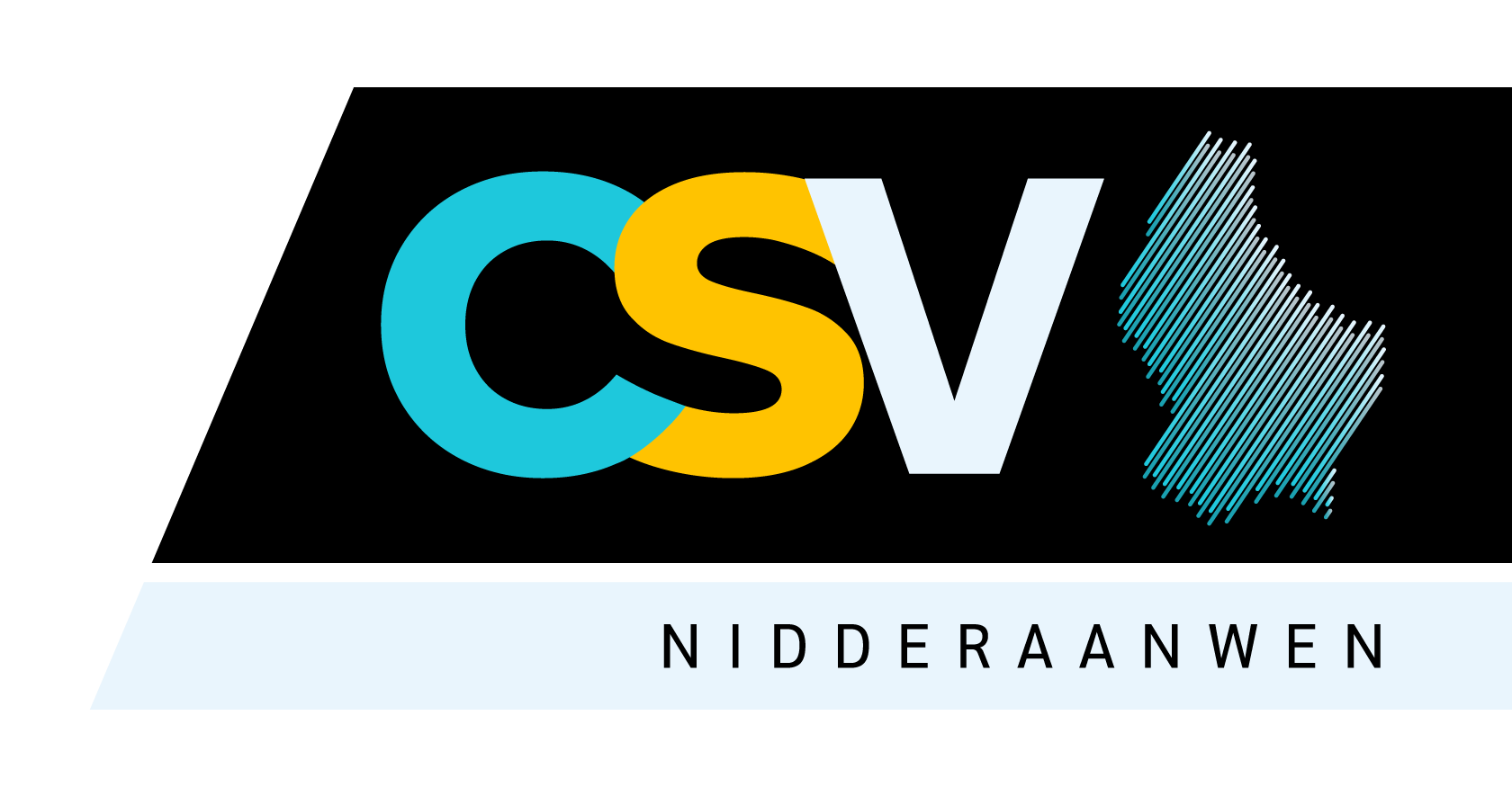

Moving Niederanven forward together
Close to the people – solidarity – future-oriented
The following election programme outlines our plans for the future development of our commune and sets the course until 2050. It therefore has an impact beyond the next legislative period and shows us the path Niederanven should take in the coming years. Not all of our ideas will be realised in the next legislative period, but we want to create a transparent, strong, and long-term political vision for the future that we can implement with a dynamic and competent team. With the #Team2023, the CSV Niederanven has positioned itself well in advance and thus prepared itself for the challenges ahead. In workshops, during a tour of the commune and together with our members and citizens, we discussed and elaborated our ideas. This has resulted in a programme that provides a stable framework for the years to come whilst leaving room for expansion regarding possible new political challenges.
We have identified 3 major goals for the next 6 years with a total of 12 priorities:
.1. Strengthening citizen-centred services
- Optimal access to health services for all residents: medical centre, health prevention, physical exercise, emergency services
- Local supply facilities for all citizens: shopping centre, restaurants, shops an businesses
- Enhancing communication and interaction between the communal administration, citizens, associations, and businesses throughout the legislative period
- Ensuring the safety of all residents
.2. Promoting living together in solidarity
- Creation of living space for younger and older citizens
- Massive strengthening of associations and voluntary work
- Active support of all forms of peaceful coexistence in the sense of a community in which solidarity is practised in everyday life
- Designing new meeting places to make village life more dynamic and attractive
.3. Setting the course for the future
- Developing a comprehensive mobility concept for our community including a direct connection to the tram and traffic calming measures in our villages
- Developing modern infrastructures to meet the demands of the future
- Consistent approach to the energy turnaround in our commune in conjunction with a solidarity-based cooperation policy
- Preservation of the natural habitat in our commune
________________________________________
.1. Strengthening citizen-centred services
- Optimal access to health services for all residents: medical centre, prevention, physical exercise, emergency services
The construction of a medical centre on the site of the former police station next to the town hall (a joint practice with several general practitioners and specialists) to ensure fast and direct health care for citizens of all ages is a priority for us.
We will commit to having the pharmacy at this location, in order to bring together all health-related services in one place and in modern conditions.
In addition to medical care, we will put more emphasis on preventive health care, for example by organising activities or information weeks on subject of health (e.g. on mental health, addiction prevention, alternative medicine, physical activity …). In addition, we will initiate measures that contribute to the improvement of health and hygiene in our commune, for example first aid courses (classical and mental health) or courses regarding the use of defibrillators in collaboration with the CGDIS, but also very concrete projects such as free hygiene products in public toilets, changing tables for babies in women’s and men’s toilets, healthy products in vending machines, …
Together with our sports coordinator and the clubs, we will design a comprehensive physical activity programme “Niedz2move” with activities for all age groups. For children, this means for example sports weeks or Olympics in the form of “Mini-Niederanven” supervised by students in Summer. For adults, this means, for example, preparation for cycling competitions and races (marathon, bike tours, …), and the range of sports offer should also be extended for senior citizens and the very young. We support the establishment of a fitness centre and the creation of a room for yoga, aerobics, etc. in our commune. In an emergency, competent help must be available quickly. We will therefore support the “First Responder” programme of our fire brigade to the best of our ability and will push ahead with the construction of an intercommunal fire station in cooperation with the commune of Schuttrange.
- Local supply for our fellow citizens: shopping centre, restaurants, shops an businesses
Although the shopping centre “Les Arcades” is privately owned, we want to actively contribute to the modernisation of this site. We want to commit ourselves to creating more space on the site for essential shops and additional housing (flats for young and elderly people) by using the current parking spaces. This parking space should be converted to an underground car park and continue to be used free of charge for public events and thus being optimally utilised. This will not only create urgently needed housing in the centre of the commune, but also attract new businesses (e.g. fitness, sports shop, fashion and shoe shop, florist, organic shop, snack/takeaway, pop-up or concept store, …). Services such as the post office or banks should also remain in our commune.
It is important to us that the existing shops can continue to operate during the transformation phase (for example in modular structures).
The promotion of this project is important to us, because it is the centre of our commune and it is important for us to develop this centre in such a way that it benefits all citizens.
In Luxembourg, integration and cohabitation often take place while eating and drinking. We want to ensure that our Horesca sector (Hotel, Restaurant, Café) continues to diversify by creating offers that are not fully covered today in our commune:
– The Waldhaff restaurant is to be modernised and become a meeting place for nature lovers and amateurs of Luxembourgish cuisine.
– We are committed to build an all-day open literary café in the intergenerational housing project in Rue Laach.
– The old farm next to the playground in Ernster is to be modernised, extended and rented out to a sheltered workshop (Ligue HMC) growing fruit and vegetables there. This locally produced food will be sold on site in a farm shop/shop with an adjoining café.
– We are in favour of running a kiosk at the skatepark during the summer months (e.g. with drinks, ice cream, …). We see this as a project, for example in the context of a mini-company or an innovation camp, in which young people can be actively involved.
– In our commune, we will define locations where food trucks can be set up, which helps to strengthen village life and further diversify the range of restaurants.
Since the commune’s income from commercial taxes is limited by state law, we want to give priority to attracting small and medium-sized businesses whose products and services contribute to the quality of life of our citizens.
With innovative concepts (e.g. in combination with a sheltered workshop), we want to attract small food shops to our commune, so that shopping is preferably possible without car. As a commune, we will join the Letzshop platform to support local commerce in its digitalisation.
- Enhancing communication and interaction between the communal administration, citizens, associations, and businesses throughout the legislative period
In order to ensure that residents receive information in a variety of ways, the communication between the communal administration and the citizens is to be consistently developed under the coordination of our PR manager. In order to determine the precise information needs of our citizens, a survey will first be conducted. It is also planned to make more use of modern communication services such as short videos.
We are committed to making the commune’s website more attractive and user-friendly, so that information can be found more easily and quickly.
We encourage the possibility of receiving communications from the commune in printed or digital form. A regular dematerialised newsletter should be sent by e-mail to all interested citizens.
We are committed to making the communal application multilingual and to developing citizen participation via the application, so that the good ideas of our citizens can be taken up more easily. We also want to start developing a carpooling module in our commune. We want to improve and expand the feedback that residents receive on their contributions. The digital display (e-Raider) should also be offered via the application.
We encourage the participation of all our citizens by organising citizens’ workshops before each major project. Flexible working groups should also be set up according to the projects, for which age and language should not be an obstacle.
We want to enhance the value of the advisory committees by providing each committee with two civil servants to help implementing the planned actions.
We continue to support the integration of children and young people into community life (Niedz4kidz working group) and also want to set up a platform to coordinate all services for senior citizens via a similar group (Niedz4seniors). The recruitment of an inter-generational coordinator for the commune should make it possible to develop these services. For children and young people, we want to set up a children’s office within the framework of Niedz4kidz, which will provide them with help and advice. In the Maison Relais, too, children should be able to give feedback via a simple procedure and participate even more in decision-making. We want to develop the existing communication platform between the actors around the Maison Relais into a more regular joint committee, in which an exchange between the school, the Maison Relais, the parents and the commune would take place every quarter.
We are also looking into possibilities of setting up such working groups in other areas.
We want to establish regular citizens’ meetings with the mayor. These will take place both on site at the town hall and online at fixed consultation times, so that all citizens can have direct contact with the head of the commune.
The communal budget is to be published transparently on our website. This will give the citizens the opportunity to participate in the elaboration of the different budget items.
In close cooperation with local businesses, we will promote contact between our citizens and businesses (e.g. career information evenings for young people, visibility of local businesses on the commune’s website, local job exchange, local business fair, etc.).
We are developing a comprehensive digitalisation strategy for our commune, so that all services can also be offered in digital form. The traditional services will of course be maintained, but expanded and supplemented by the possibility of easily carrying out administrative procedures online (e.g. tracking monthly water consumption or the weight of your rubbish). This digitalisation strategy will also lead to a significant reduction in paper. For those who were not born in the digital age, we want to offer courses and support for concrete technical questions/answers as well as help in using digital tools (e.g. fixed consultation hours, …).
- Ensuring the safety of all residents
We support the implementation of awareness campaigns in cooperation with the police in order to reduce the number of burglaries in our commune.
With the construction of a new regional police station on the Route de Trèves, we also support an increased police presence in the commune. We will request the necessary personnel for this police station, so that the police can be much more present in your neighborhood.
People will also have the opportunity to report to the police when they are away from home for a long period of time, so that there will be an increased police presence on the streets concerned during this period.
The comptences of our communal officers need to be enlarged. The hiring of an additional officer should allow to be more present, especially in the evening and during weekends. This will also increase the presence of communal officers on the ground and increase direct contact with citizens.
In central locations, such as the skatepark, we will introduce camera surveillance to increase security and reduce vandalism, and we will consider the presence of security services where necessary. In collaboration with the police, we would also like to look into the possibility of installing cameras on the main roads in order to be able to track suspicious movements in the event of a burglary.
We will ask the police to have regular speed checks carried out in our commune to make traffic in Niederanven safer.
In order to improve the safety of pets living in the commune, we want to set up a one-stop point for reporting lost or found animals in cooperation with the local animal protection society.
.2. Promoting living together in solidarity
- Creation of living spaces for younger and older citizens
Young people are nowadays finding it difficult to find housing in our commune. Another group that has problems finding a home is the elderly, whose homes can become too big as they age.
We call for an affordable housing service that offers our young, elderly and socially disadvantaged citizens help in finding affordable housing. The housing offer should be permanently available on the website of the commune of Niederanven.
We want to create affordable housing for young people, also by supporting new forms of housing built according to ecological criteria (e.g. tiny houses, modular housing, youth housing projects or community flats).
In concrete terms, we want to create at least 38 housing units for young people in the next legislative period (8 flats and 8 houses in the Pelgert housing estate and 22 flats in Rue Laach). In the middle term, our commune will be able to build around 250 affordable housing units in two major construction projects (PAP), which will provide around 75 housing units for young people per legislative period by 2050.
Together with the ministry and public developers, we want to develop innovative projects and increase the emphasis on cooperative housing to provide housing for locals. We are also looking into the possibility of the commune making it possible for young people who have grown up here, to continue living in Niederanven (e.g. by offering reduced rents that allow them to build up equity and borrow to buy the rented property later). We will continue to engage in housing construction and stimulate initiatives that strengthen the savings culture.
Currently, a multi-generational community housing is being built in rue Laach, next to an old farmhouse, with housing for young families as well as 16 flats for elderly people. In the renovated farmhouse, an attractive “literary café” for all age groups is planned, with an all-day offer of food and drink. Cultural workshops will also be offered here and a space will be created for social, musical and artistic activities. There will also be space for the Club 50 Plus and the Club Senior, to bring together the whole communal offer regarding seniors in one place. Offices for start-ups with coworking spaces will also be provided under the same roof.
However, this senior housing is far from being sufficient. That is why we want to build more senior housing next to CIPA close to the local shops. This will also make it easier to move to CIPA later on. We will also support community-based forms of housing for the elderly. For example, we want to set up an intergenerational housing project behind the new police station. Our commune currently lacks small-scale housing for both young and old. Without this, we will not be able to implement the priorities mentioned above. In central locations, such as the local shopping centre, we will therefore favour denser construction, which will require a punctual adjustment of our development plan. We do not want to increase the volume of construction, but rather allow more units with smaller dwellings to be built with the same volume. In existing residential areas, the existing building structure should be maintained, and the character of these areas preserved. We will continue to support the possibility, existing since 2016, to convert houses under conditions, for example into semi-detached houses.
- Massive strengthening of associations and voluntary work
As the clubs make a decisive contribution to making our commune an active one, we want to support them as much as possible in their tasks and in the increasingly required professionalization.
We would like to have a regular exchange between all sports clubs in cooperation with the sports coordinator in order to evaluate the current situation and to develop measures for improvement.
Based on the model of the sports coordinator, we would also like to create the position of a cultural and social coordinator in order to support the cultural, nature and social associations as much as possible. This coordinator will also be responsible for steering the events calendar in order to coordinate all the events in the commune and avoid overlaps. The digital calendar of events should also be improved.
Administrative procedures are certainly a major burden for the associations. We will support the associations in this task by encouraging digital platforms to simplify these procedures (e.g. membership management, financial management, …). We also support the creation of a digital storage system (cloud) that would make IT infrastructure available to associations.
For associations with a high administrative burden, we introduce a flat-rate subsidy when it is necessary to hire a person to take care of the administration of the club.
The supervision of young people in the associations should be further professionalised, as required by the state. In order to take into account the resulting increase in costs, we will substantially increase the relevant communal subsidies.
Since the associations make a significant contribution to the good integration of all our citizens, we will continue to support them in this area.
Many of our cultural associations are faced with succession problems and sports associations, in particular, often lack volunteers. We therefore want to set up a “We NIED you” programme in the commune to recruit new members and launch a volunteer recruitment campaign. In addition, we support the digital presence of associations.
In order to honour volunteering and encourage cooperation between associations, we want to organise an annual festive evening for volunteers and introduce an award for merit in volunteering.
In order to develop volunteering in our commune as a whole, we are promoting the establishment of a local volunteering agency in cooperation with the National Volunteering Agency, to which associations and other institutions (such as CIPA or Syrdall-Heem) can submit applications for volunteering support and to which people who wish to volunteer occasionally or regularly can apply. Volunteering offers an attractive perspective for people who are in transition from working life to retirement and new community members. We will also intensify communication about volunteering and launch recruitment campaigns so that people can become involved locally.
- Active support for all forms of peaceful coexistence in the sense of a community in which solidarity is lived out in everyday life
With the pact of living together, we are bringing together all aspects of living together in our commune.
We will strengthen and focus on cohabitation by creating more opportunities for citizens to meet.
By setting up and developing a parents’ forum, we strengthen young families and offer courses (e.g. from the Liewensufank Initiative or the Parents’ School) or organise meeting times for young parents.
We want to develop our commitment to the reception and integration of refugees by providing accommodation and patronage. The collection centre for clothes and everyday items is to be expanded in cooperation with social welfare and made accessible to all people in need.
For new residents, we want to publish a brochure with all the important information about life in the commune, which will also be updated digitally at regular intervals.
We support the “Sunday Brunch” initiative, which enables all our citizens to meet up regularly.
In addition to the language café, we want to introduce language sponsorships and look for ambassadors for new residents to welcome them to our commune.
We are also committed to a regular second-hand market/flea market with an additional bicycle market.
In order to further integrate the international community in our commune and to consistently develop contacts with our twin cities, we want to create a free working group for “Douzelage” (our 27 twin cities in the European Union), open to all interested citizens. We also want to create and develop partnerships with non-EU countries. We support the use of an application to make Douzelage better known and to allow people from our commune to get in touch with citizens from other partner municipalities. It is also planned to publish insider travel tips or study opportunities for young people. The aim is to revive Douzelage and to facilitate contact between the citizens of all the municipalities involved. By expanding the use of the education centre and creating a joint structure in the countryside (Outdoorkids Niederanven), we aim to create a quality educational landscape with different actors, from nursery to lifelong learning.
- Designing new meeting places to make village life more dynamic and attractive
To organise an optimal cohabitation, we need places where people can meet.
A first project in this sense is the village square in Senningen. We support the redevelopment of the village centre of Ernster according to a similar model and want to bring more quality of life in the villages with the redevelopment of the main street in Rameldange/Hostert or the Route de Trèves in Niederanven.
In Senningerberg, we want to plan the redesign of the road network in the Gromscheed district in cooperation with the local residents, in order to improve the quality of life here too.
Right next to the Am Sand Leisure Centre, we want to create a festive square where all the community’s events will take place. This square is to be created over a large part of the leisure centre car park. In this way, safety around the school and the public facilities will be improved at the same time. A car park with direct access to the CIPA, the Syrdall Heem, the swimming pool, the leisure centre and the senior citizens’ housing that we are planning to build next to the CIPA is to be created near the swimming pool. This car park is to be equipped with a photovoltaic system so that electric cars can be charged in the parking spaces. We would like to check whether we can help the residents of the commune financially or materially to plug in their cars in this car park and charge them at the same rate as at home with energy produced directly on site.
To encourage physical activity and spontaneous encounters between neighbours, public sports facilities should be created in our villages, such as an additional multi-sports field, a streetball court, a pumptrack (track for bicycles), etc.
In order for dog owners to meet each other and for their dogs to come into contact with other dogs, we are planning a dog play area.
We also want to make the public space more attractive through innovative alternative culture projects such as urban/street art.
An intergenerational park should be created behind CIPA and the park near the cultural centre should be used more, especially in summer. Within the framework of the Wifi4EU programme, we are promoting the extension of free public WLAN and the installation of hotspots in central locations in the commune. The existing WLAN network in communal buildings should be improved.
.3. Setting the course for the future
- Developing a comprehensive mobility concept for our community including a direct connection to the tram and traffic calming measures in our villages
Our commune, and in particular the Senningerberg and the airport area is facing a major change. With the arrival of the tram at Heienhaff and the airport, the organisation of public transport in our commune must be reviewed.
We want to make sure that our citizens can get to the Heienhaff interchange as quickly and directly as possible via a convenient connection from every village. Senningen in particular, which is currently not well served by public transport, must be improved. We want to make public transport more attractive by providing live information on current timetables, delays, etc.
We demand up-to-date noise maps in order to be able to objectively analyse the noise pollution generated by the interchange as well as by the changes of the air routes.
We support the development of the regional on-demand bus Syrdall and the financing of an additional bus to meet the growing demand. In addition to the possibility of booking by phone, reservations should also be possible via an app. It should also be possible to check availability via the app.
To improve the service to neighbourhoods that are not on a direct bus route, we want to test autonomous busses to connect them to the main routes. We will also investigate the possibility of a circular bus route within our commune.
We want to further develop the VELOH system in our municipality, so that short distances can be covered by bicycle, while ensuring a simple connection with the bus lines. Furthermore, we support the connection of the VELOH system with the neighbouring communes and thus the connection of Niederanven to the railway network in Roodt/Syre and Munsbach.
In order to give Niederanven a more village-like character and to provide more safety and space for pedestrians and cyclists, one of our priorities is also the transformation of the N1 in Niederanven.
Along the shopping centre, a safe cycle and pedestrian path is to be created towards the Am Sand centre.
The Grünewald Street should also be redesigned and a direct pedestrian and cycle link to the football field and the national cycle path should be created.
We want to make the Rue Laach and Rue Andethana less busy and integrate cycle paths where possible.
In Rameldange, Hostert and Oberanven, we want to create safe pedestrian and bicycle connections. To take account of the specific topography of the commune, we want to explore innovative ideas such as a bicycle lift.
Overall, we want to promote cycling as a means of transport and extend the cycling network by 10 kilometres.
mBoxes are to be installed at strategic locations so that bicycles can be parked safely and the journey can be continued by bus.
In the whole village of Senningen, we will create a 30 km/h zone, which will also include the redesign of the rue du Château and more green spaces. The 30 km/h speed limit is also to be introduced in the rest of the commune, where possible. We are also actively engaged in the implementation of a 30 km/h zone on the main roads.
The current parking system for local residents needs to be re-thought. We want to develop a comprehensive concept that gives our citizens priority in the commune’s public car park and at the same time limits parking to 3 hours in the central squares. This will enable restaurants and shops, for example, to offer free parking spaces to their customers. If additional parking space is created, it should be organised as a collective or underground car park. We also encourage carpooling and the installation of additional charging stations for electric cars in the commune.
- Developing modern infrastructures to meet the demands of the future
A modern commune needs a modern infrastructure. We give great importance to a modern resource centre (instead of the recycling centre) with an extended second-hand area and a repair shop in which everyday objects can be restored to working order and sold at a reasonable price.
The school infrastructure is also to be expanded. For the youngest children, a building is to be constructed which the school and the Maison Relais can use together.
We want to create day-care places at different locations in our commune. Next to the scout house in Senningerberg, a forest crèche is to be created as an additional childcare facility.
The “Loisi” leisure centre in Am Sand, which is a focal point of our community life, is to be rebuilt in accordance with current environmental standards and with innovative concepts for maximum use of photovoltaic energy. This project will be developed in line with the new festival square and by integrating the current fire brigade site.
The infrastructure for the sports clubs is also to be developed to meet the requirements of the coming years. The tennis courts, the soccer field and the Am Sand sports hall are to be expanded. Our aim is to offer all the sports offered at the Am Sand centre to the children of the basic school, in order to reduce the number of trips to and from the Maison Relais.
To meet the growing demand, our music school should also be developed and expanded to include other offerings (e.g. modern music learning).
We also want to set up an outdoor bouldering facility to allow climbing enthusiasts to practice this sport without special security equipment.
At the Syrdall Schwemm, we will consider the possibility of an additional small pool to expand the range of courses and offer swimming lessons for all ages. We will also discuss the possibility of a natural pool.
We want to start a study on the future needs of CIPA in order to provide a sufficient number of rooms.
The old Senningerberg water tower is to be modernised and made suitable for overnight stays. Active tourism (cycling) directly on the national cycle path is to be promoted by this tourist attraction (Bed & Bike).
In order to guarantee an optimal water supply at the Senningerberg, we will install a new water pipe to the airport and a separate water tank at the airport.
The Übersyren sewage treatment plant also needs to be expanded urgently to cope with the growing population.
Together with the national grid operator, we also want to examine the electricity network and ensure that the commune’s future needs are covered.
The cemeteries in Senningen and Ernster are to be modernised according to the model of the cemetery in Hostert. We also want to examine the creation of a forest cemetery owned by the commune.
After the creation of a central festival square and the examination of alternatives for the location of our garden and water service outside the residential areas, a project is to be created next to the town hall, thus contributing to a dynamic and diversified development of the commune. Here we imagine an attractive living space with a brasserie in the park, a crèche and housing for the elderly. We also want to consider the creation of a small youth hostel to offer young people affordable accommodation in our commune. The construction of an indoor playground, or even a bowling alley, could be another way to promote social gatherings. In order to anticipate future developments “Am Sand“, we are working on a comprehensive master plan which aims to secure the necessary areas for public infrastructure (school, halfway house, sports facilities, music school, cultural centre, CIPA, Syrdall Heem, housing for the elderly).
- Consistent approach to the energy turnaround in our commune in conjunction with a solidarity-based cooperation policy
Our goal for 2030 is to make the energy consumption of private households 100% climate-neutral. That is why we want to implement a massive photovoltaic package as well as thoroughly investigate the installation of a wind turbine. One wind turbine generates electricity for 2500 households, which is currently the size of our entire commune. For this reason alone, it is worth considering this possibility. Citizens must be involved in the planning from the very beginning. If a wind turbine is installed, it should function as a citizens’ cooperative. If there is no site in our commune far enough away from existing houses and nature reserves, we are considering participation in a wind farm as well as the possibility of installing small local wind turbines, for example on communal roofs.
New houses and businesses will be required to install photovoltaic panels on their roofs. We will provide advice to existing businesses to ensure that the maximum use of roof space for photovoltaics is achieved. We also want to increase the subsidies for photovoltaic installations.
The regional energy cooperative should be allocated more roof areas for photovoltaic equipment (e.g. the entire roof of the CIPA or the swimming pool). All citizens and residents/families of CIPA should have the possibility to join the cooperative.
Our long-term goal is to produce more energy than we consume in the commune. Only in this way can we achieve global climate neutrality. Above all, we want to show solidarity with the countries of the South and support additional energy projects in addition to our existing cooperation projects in Rwanda and Niger.
For communal buildings, we are presenting an ambitious renovation package and studying the extension of district heating networks.
We want to create a platform for renting and sharing devices and other objects, in which local businesses will also be involved. It should also be possible to borrow a trailer.
We can only meet the enormous challenge of climate change as a community. That is why we want to organise an annual community climate forum and define concrete objectives to be implemented together.
For the energy management of communal buildings, an intelligent digital management system must be implemented to monitor and manage the entire energy consumption of the buildings. Every citizen should also have the possibility to consult the energy consumption on the commune’s website.
After the conversion of all communal roads to LED lighting, we also want to use intelligent lighting systems in new districts to save even more electricity. In existing residential areas, we want to make further savings by reducing or switching off LED lights at night. Every communal project must be climate checked before it is voted on. We also need to ensure that projects are 100% accessible for everyone.
- Preservation of the natural habitat in our commune
Our climate is changing and we must adapt to the changes. In order to improve the quality of life in our villages, we are not only working on a climate adaptation concept, but also on the consistent implementation of the nature pact.
People and their health are our priority. By preserving nature, we are also doing our health a favour. In order to ensure that nature and man are in respectful harmony, nature conservation must continue to progress.
In cooperation with the SIAS biological station, we want to intensify our advisory services on the subject of “wasps”.
Nature offers many opportunities for recreation, which our citizens should be able to make the most of. For this reason, we are reviewing the entire network of hiking trails in the commune. Children should also learn to appreciate nature through interactive and playful hiking trails. In our forests, we want to have official mountain bike routes marked out.
The local cultivation of fruit and vegetables should be encouraged in order to cover local needs as well as possible. A community orchard should also be developed.
The agricultural land owned by the commune should be used in part for innovative projects (e.g. permaculture, agroforestry, ecological agriculture, ….).
We are committed to the animation and expansion of our market, which should be made more attractive, e.g. in winter, by putting a roof over it or moving it to the new Am Sand festival square.
We promote the use of more drinking water from our own sources, in order to become more independent in the supply of drinking water. We will systematically promote the use of tap water instead of bottled water.
We support the renaturation of the streams and the creation of a natural recreation area Am Sand and an intergenerational park behind CIPA, which will benefit both nature and our citizens.
In order to avoid flooding due to the increasingly frequent heavy rainfall, we want to implement further renaturation projects.
For events organised by the commune and the associations, we support the criteria of “green events“.
We also want to implement an action plan against light pollution.
We encourage the sorting of waste, especially in apartment buildings.
In addition, we will study the introduction of a white bin for Valorlux waste. In order to green the villages and to reduce extreme temperatures, especially in summer, we plan to plant 100 new trees per year in the villages (on playgrounds, village squares, along the roads, ….).
Final remark on financing
The next legislative period will require significant investments to prepare our commune for the future. We have to draw on the reserves from previous years. In the event of rising inflation, this is the best option from a financial point of view to prevent our reserves from losing their value permanently. Without investing, we lose almost 5 million euros with an inflation rate of 7% in a year.
To ensure that our commune continues to have stable finances, we are drawing up a detailed multi-year financial plan up to 2030. As a result of the capping of our revenues, especially from business tax, we also have to look for other ways to generate income (e.g. increasing business property tax, which directly benefits the commune).
(C) Photos: Uli Fielitz
